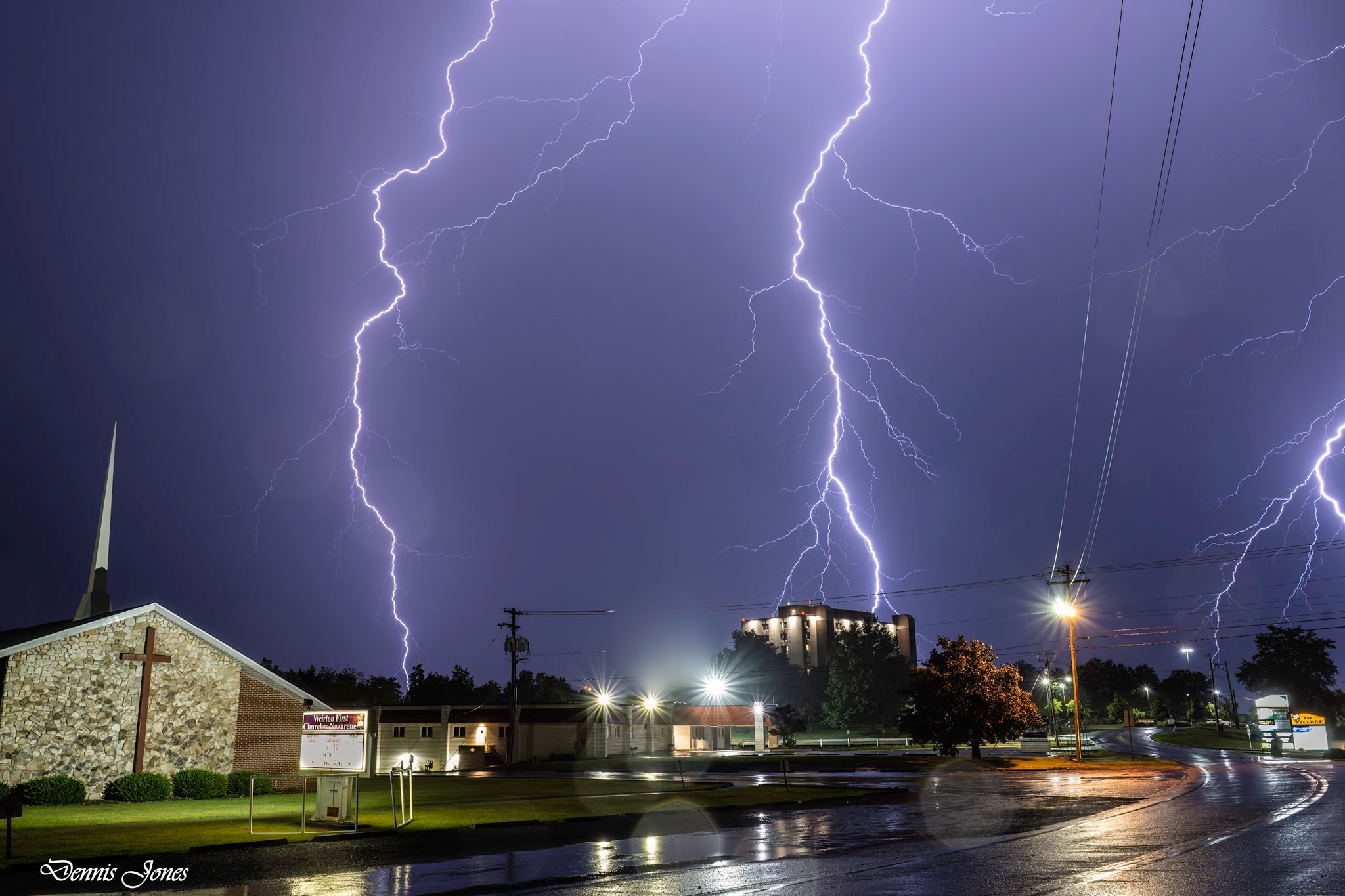By Erie Insurance 
Though disasters like hurricanes tend to get more attention during the summer months, it’s important to know how to stay safe from lightning. That’s because lightning presents serious dangers to both people and property.
LIGHTNING SAFETY AND PEOPLE
Lightning can occur during any time of the year, but lightning casualties are highest during summer. July is generally the month with the most lightning. Lightning strikes often occur in the afternoon. Two-thirds of all lightning casualties occur between noon and 6 p.m. According to the National Weather Service, here are some more interesting facts:
- Males are five times more likely than females to be struck by lightning; around 85 percent of lightning fatalities are men.
- People aged 15 to 34 account for almost half of all lightning strike victims (41 percent).
- About one-third (32 percent) of lightning injuries occur indoors.
LIGHTNING SAFETY AND PROPERTY
From 2007 to 2011, local U.S. fire departments responded to an average of 22,600 fires per year that were started by lightning according to the National Fire Protection Association. These fires caused an average of nine civilian deaths and $451 million in direct property damage per year. Home fires accounted for 19 percent of the lightning fires. Fires in nonresidential structures, including businesses and other non-residential properties, accounted for 7 percent. Vehicle fires accounted for 1 percent. The remaining 73 percent were in outdoor and unclassified properties.
HOW TO AVOID LIGHTNING
There are important things to know when it comes to how to avoid lightning. Once you hear that first clap of thunder, remember to:
- Postpone outdoor activities.
- Heed the 30/30 Lightning Safety Rule: Go indoors if, after seeing lightning, you cannot count to 30 before hearing thunder. Stay indoors for 30 minutes after hearing the last clap of thunder.
- Secure outdoor objects that could blow away or cause damage.
- Get inside a home, building or automobiles with a hard top (not a convertible). Although you may be injured if lightning strikes your car, you are much safer inside a vehicle than outside.
- Remember, rubber-soled shoes and rubber tires provide NO protection from lightning. However, the steel frame of a hard-topped vehicle provides increased protection if you are not touching metal.
- Shutter windows and secure outside doors. If shutters are not available, close window blinds, shades or curtains.
- Unplug any electronic equipment before the storm arrives.
You are not safe anywhere outside. Run to a safe building or vehicle when you first hear thunder, see lightning or observe dark threatening clouds developing overhead. Stay inside until 30 minutes after you hear the last clap of thunder. Do not shelter under trees.
If it’s not possible to get indoors or in a vehicle, these actions may reduce your chances of being struck by lightning:
- Avoid open fields, the top of a hill or a ridge top.
- Stay away from tall, isolated trees or other tall objects. If you are in a forest, stay near a lower stand of trees.
- If you are camping in an open area, set up camp in a valley, ravine or other low area. Remember, a tent offers NO protection from lightning.
- Stay away from water, wet items (such as ropes) and metal objects (such as fences and poles). Water and metal are excellent conductors of electricity. The current from a lightning flash will easily travel for long distances.
- The vast majority of lightning injuries and deaths on boats occur on small boats with NO cabin. It is crucial to listen to weather information when you are boating. If thunderstorms are in the forecast, do not go out. If you are out and cannot get back to land and safety, drop an anchor and get as low as possible. Large boats with cabins, especially those with lightning protection systems properly installed, or metal marine vessels, are relatively safe. Remember to stay inside the cabin and away from any metal surfaces. Stay off the radio unless it is an emergency.
When it comes to how to avoid lightning, you should also take precautions once you’re indoors:
- Avoid contact with corded phones.
- Avoid contact with electrical equipment or cords. If you plan to unplug any electronic equipment, do so well before the storm arrives.
- Avoid contact with plumbing. Do not wash your hands, take a shower, wash dishes or do laundry.
- Stay away from windows and doors, and stay off porches.
- Do not lie on concrete floors and do not lean against concrete walls.
- Unplug electrical equipment
It’s important to prepare for natural and weather disasters. It’s also important to make sure you’re covered if something happens to your vehicle or home during a storm. Connect with a local Assure America agent to make sure you have the coverage that’s right for you. Contact us today!
Photo credits: Dennis Jones, Weirton WV



Post Your Comment